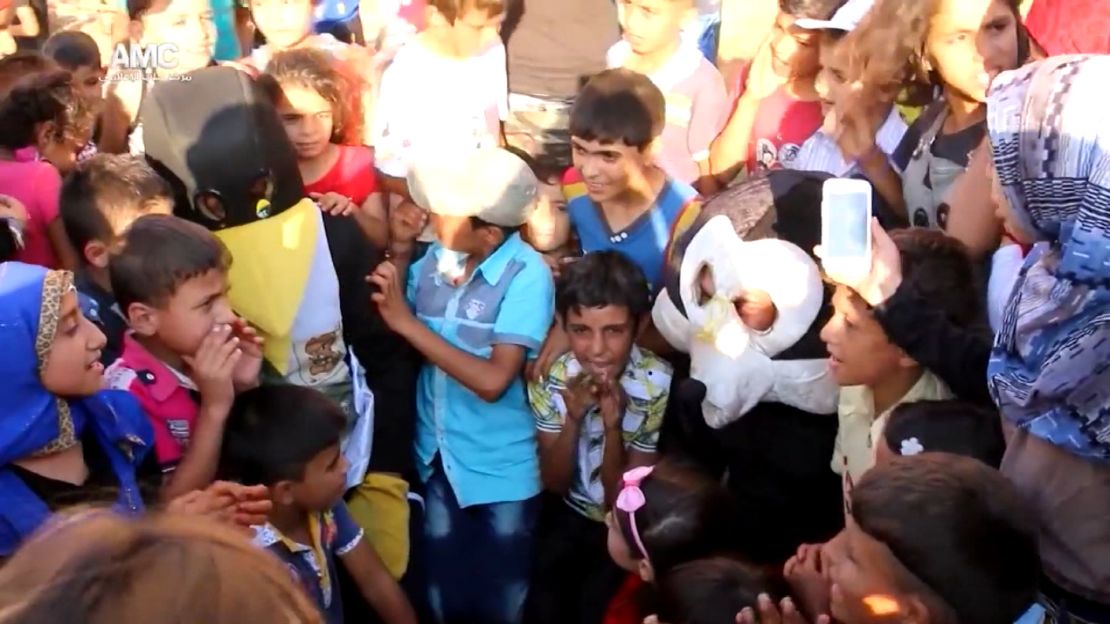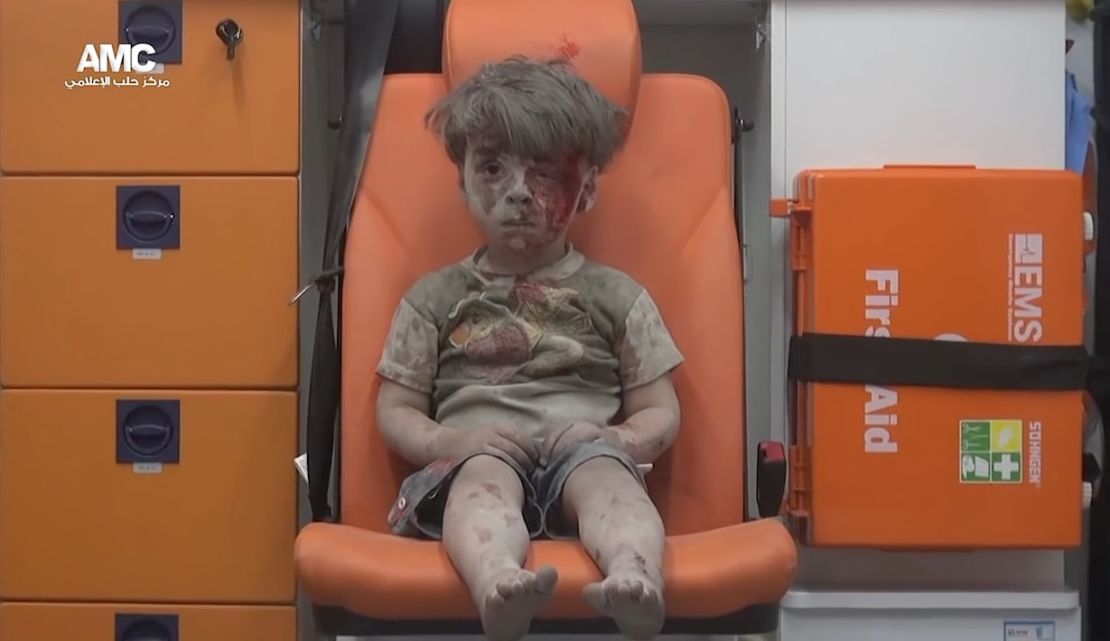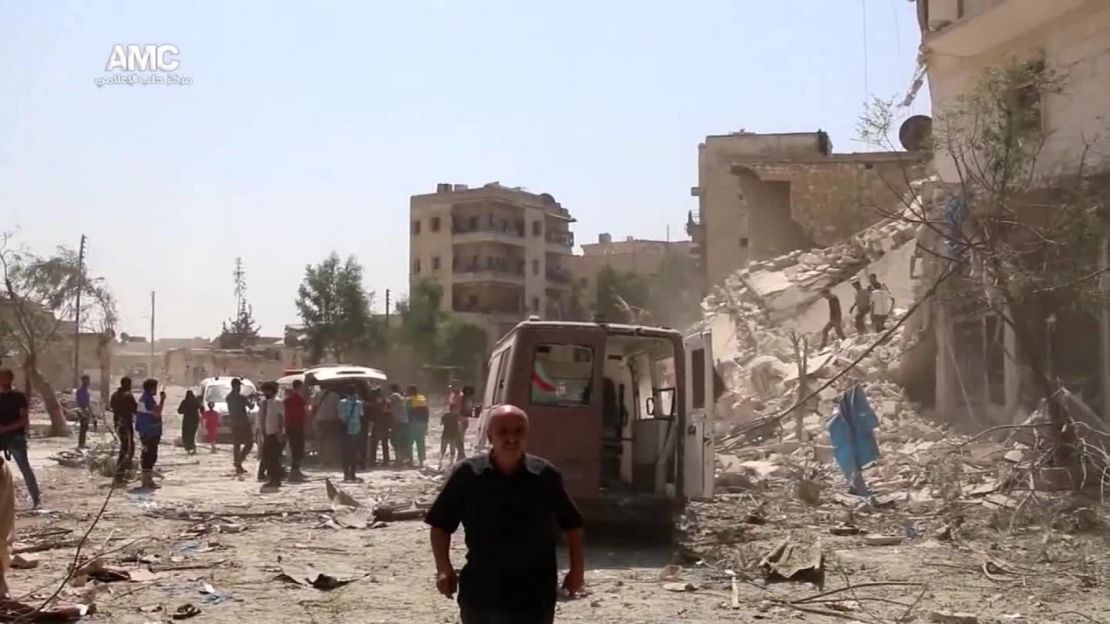Story highlights
Rebel-held Aleppo facing increasing airstrikes following ceasefire
Civilians share photos, videos, messages of everyday reality via WhatsApp
Messages have become increasingly desperate
Conditions in the embattled rebel-held eastern part of Aleppo are getting worse each day. There’s no way in or out. Residents in the city are increasingly desperate to tell the world what’s happening – and many have turned to WhatsApp.
“The situation here in Aleppo is very serious. It feels like you might die in any minute,” Modar Shekho, a 28-year-old nurse working in the besieged city, tells CNN via the messaging app.
More than 200 airstrikes bombarded the city over the weekend leaving over 100 civilians dead, with hundreds more injured, according to Ammar al-Selmo, the head of the Syria Civil Defense group, a volunteer emergency medical service.
Despite the unrelenting attacks, people remain defiant. A handful of activists regularly post updates to secured WhatsApp conversations.
WhatsApp has become an essential communications tool in the war-ravaged country. A 2015 report prepared by global market research company TNS documented that the app has become the preferred social platform of those surveyed from the region and that of those using social media in Syria, 98% use it.

Shekho – who says he works at a local hospital – shares what he sees in the Aleppo Media Center’s private WhatsApp group, an opposition-affiliated network of activists documenting the conflict from within the city. The group on the app currently has 154 participants including a number of medical professionals and teachers living in Aleppo along with international journalists.
Related: UN officials condemn ‘barbaric’ bombardment
In the conversation there are images of innocent children caught up in shelling, violent photographs of dismembered body parts and other bloody scenes.
Since the ceasefire, some residents have gone onto the streets to capture an up close view of life in Aleppo on their phones.
In one video, an ongoing airstrike can be seen in the cloudless sky above the city before the camera pans to street level. A layer of dust has caked the road and crumbling buildings are also visible. Smoke seems to hang in the air while emergency responders – identified by their white helmets – coordinate rescue efforts. The sound of gunshots can be heard in the distance.
In another post, a photo, a dead boy believed to be just eight days old is seen on a hospital gurney after he was taken from the ruins of his home.

“I know this picture is horrific but this is what people suffer,” one of the group’s participants notes.
In the days following the collapse of the ceasefire, messages in the WhatsApp group appear to be getting more desperate, more urgent.
Many within the Aleppo Media Center channel say the lack of fuel, water and intermittent access to electricity is taking its toll.
One activist, Wissam Zarqa, says he hopes that by sharing on WhatsApp, people abroad will understand the “crimes taking place.”
“Even when the internet is not that good we can use WhatsApp,” explains Zarqa, a language teacher from Aleppo. “It doesn’t cost a lot and even if the connection is weak, it works well. We get information usually like this. But when we can, we go (personally).”
Related: Aleppo has become a ‘ghost city’

In the last two months, the situation on the ground has gotten worse, according to 33-year-old Zarqa, a teacher with the Institute of Language Studies. He and his wife returned to the city a year and a half ago.
“Today it’s calmer, at least in my neighborhood, and I went out. Life goes on … Yesterday I couldn’t go out to check what was happening in my neighborhood because of the heavy shelling.
“I could count 15 attacks on my neighborhood (in the last few days). It’s never been like that before. Whenever I go out, it’s like a different neighborhood because everywhere more damaged buildings,” he says. “We try to hold on but things are getting worse and worse, that’s for sure.”
A colleague of his, Mohammed Edel, a 31-year-old teacher also from Aleppo, says “the last three or four days were bloody” and for many, WhatsApp is the only way people in Aleppo can communicate and stay safe.
“We want the world to help us get our freedom by having no bombing zone,” he says. “I write in the group to let the world are the atrocities of the war imposed on the civilians.”

















